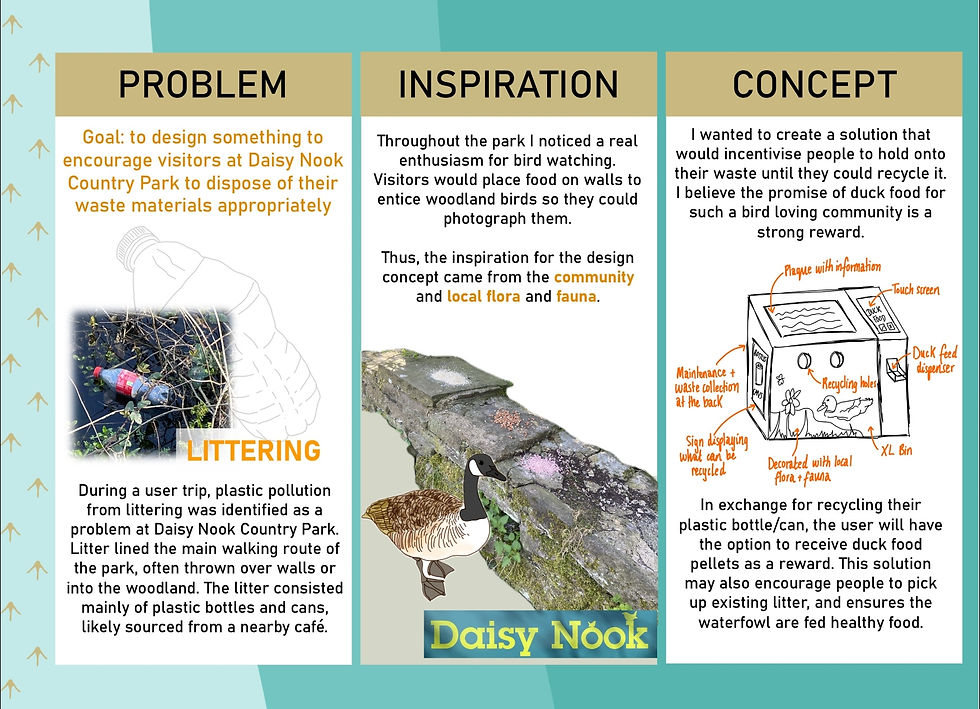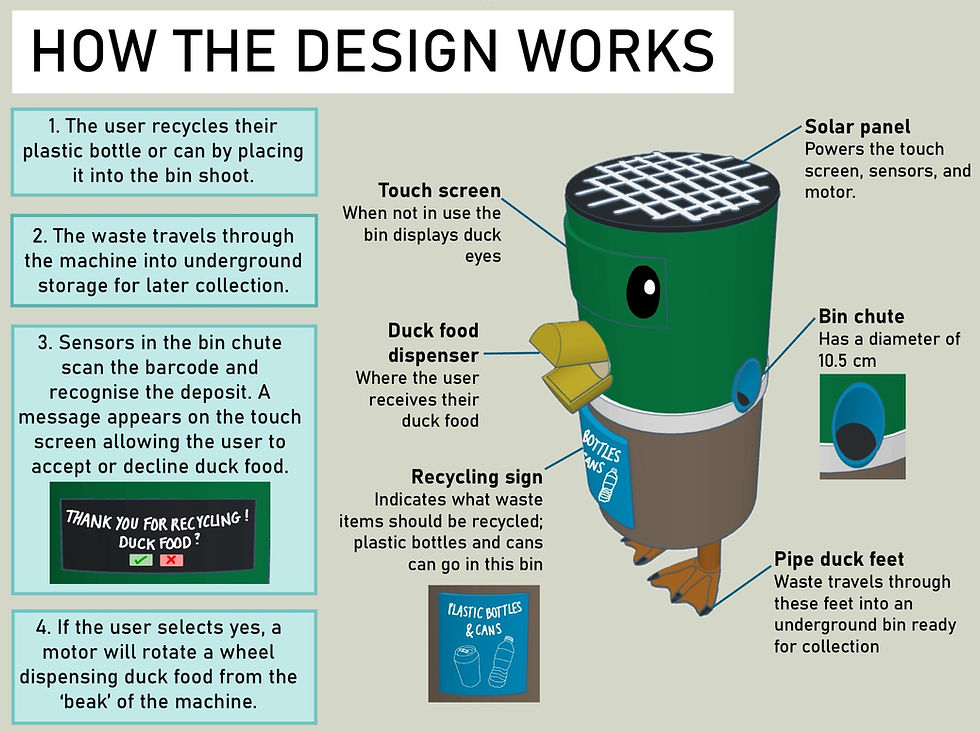
Design Brief
The aim of the project was to design something to reduce littering at Daisy Nook Country Park by encouraging visitors to recycle.
At the beginning of the project, I went on a user trip to Daisy Nook to look for opportunities for improvement. Whilst there I observed large amounts of litter deposited adjacent to the main walking trail, despite bins being present at either end of this route. The litter consisted mainly of plastic bottles and drinks cans likely sourced from a nearby café. This highlighted a need for a solution which would encourage people to hold onto their rubbish until they found a bin.
To better understand the problem, I read scientific literature surrounding littering behaviour and this helped to inform my design concepts. Moreover, associative thinking, in particular adapting and transferring technology from existing designs, was used to aid the generation of such ideas.
Process


The final design is a solar-powered recycling machine that rewards the user with duck food in exchange for depositing a plastic bottle or aluminium can. This design was inspired by the local community at Daisy Nook, encompassing their love and passion for birdwatching and wildlife. The hope is that people would be enticed to recycle, holding onto their litter to receive the duck food reward. This solution may also encourage visitors to pick up existing litter (which is harmful to wildlife), and ensures the waterfowl are fed a healthy food.
Design Proposal



About me
I am currently studying towards a BSc in Design and Innovation. Having just completed T217, my aims for the module were to improve my design presentation skills, including both verbal and visual communication, and to be more confident with my design abilities.
My aspirations after completing my degree at the Open University is to pursue a master’s degree in landscape architecture. As an assistant gardener, and a lover of wildlife, I would love to use my design skills to design green spaces in urban areas, to increase biodiversity, and give urban communities access to nature.


